The draft law clearly stipulates that the recruitment, management, arrangement and use of civil servants must be based on the requirements of the job position and the capacity and effectiveness of the civil servant's performance, without conducting exams or considering promotion of professional titles of civil servants. The conversion of the method of managing civil servants according to job positions as in the draft law is to suit the current trend of public sector reform, meeting the requirements of "strongly innovating the method of recruitment, assessment, planning, training, fostering, arrangement and use of cadres, civil servants and public employees in the political system", creating a legal basis for implementing salary payment according to job positions in the spirit of Resolution No. 27-NQ/TW (May 21, 2018); ensuring consistency in the provisions of the Law on Cadres and Civil Servants.
In addition, the transformation of the method of managing civil servants as in the draft Law also aims to contribute to increasing transparency and fairness in recruiting, using and managing civil servants based on clear work, capacity and actual work results, to improve the operational efficiency of public service units. Evaluating civil servants based on work performance will motivate civil servants to make efforts every day, avoiding the situation where a group of civil servants work perfunctorily, "all day, full of work".
In addition, the draft Law clearly stipulates the form of competitive examination, public and equal recruitment and the form of reception for high-quality human resources. Public service units are proactive in choosing recruitment methods suitable for the industry and field of operation, aiming at a professional and modern management model. If this regulation is implemented correctly, it will help recruit competent and qualified people. However, to avoid negative occurrences, it is necessary to strictly regulate the recruitment process, increase the application of information technology and enhance the responsibility of competent persons in recruiting and appointing civil servants. Only then will there be no situation of recruiting or appointing the "wrong" person.
Thus, in order to recruit civil servants, in addition to the form of examination and selection, the draft Law stipulates the form of "receiving" subjects such as experts, scientists , people with special talents and abilities... Diversifying the method of recruiting civil servants as in the draft Law is necessary, creating conditions for public service units to be proactive in recruiting and selecting competent people who meet job requirements. However, there needs to be a mechanism for strict control and supervision, and there needs to be specific criteria and procedures for cases of reception to avoid abusing the mechanism when "receiving".
Not only innovating in recruitment and management, the draft law also shows innovation in the mechanism for evaluating civil servants. Accordingly, the draft law stipulates principles, authority and develops regulations for regular, continuous and quantitative evaluation of civil servants based on the results of performing tasks, applying science and technology to create a mechanism for screening civil servants as soon as they are determined not to meet the requirements of the task without having to wait for the evaluation results for 2 consecutive years as prescribed by current regulations. The authority to evaluate civil servants is carried out by the head of the public service unit or delegated the authority to evaluate to the head of the affiliated unit; at the same time, the Government is assigned to promulgate a Framework of evaluation criteria for civil servants at public service units as a basis for public service units to develop evaluation regulations applicable to their units. This regulation is consistent with the policy of promoting decentralization and delegation of authority, allowing units to decide to use evaluation methods appropriate to their agencies and units.
In fact, in the past, the evaluation of our civil servants was still formal, due to the lack of specific criteria, due to deference and avoidance. In order to evaluate and classify civil servants in a real way, without general and emotional evaluation, the Government needs to direct the development of regulations that clearly define specific products associated with each specific job position, with clear criteria and quantification. It is necessary to use the criteria for completing work and the satisfaction index of people and businesses as measures to evaluate civil servants.
The innovation of the civil servant evaluation mechanism will create a competitive mechanism within the team, motivating civil servants to constantly practice, improve their capacity and sense of responsibility in performing their duties. This will eliminate the mentality of "having an entry but no exit" in the civil servant team. Thereby, improving the professional qualifications of civil servants, the quality of public services, and meeting the increasingly high requirements that social practice demands.
Source: https://daibieunhandan.vn/nang-cao-chat-luong-vien-chuc-10388214.html


![[Photo] General Secretary To Lam receives US Ambassador to Vietnam Marc Knapper](https://vphoto.vietnam.vn/thumb/1200x675/vietnam/resource/IMAGE/2025/9/29/c8fd0761aa184da7814aee57d87c49b3)
![[Photo] General Secretary To Lam chairs the meeting of the Central Steering Committee on preventing and combating corruption, waste and negativity](https://vphoto.vietnam.vn/thumb/1200x675/vietnam/resource/IMAGE/2025/9/29/fb2a8712315d4213a16322588c57b975)

![[Photo] National Assembly Chairman Tran Thanh Man chairs the 8th Conference of full-time National Assembly deputies](https://vphoto.vietnam.vn/thumb/1200x675/vietnam/resource/IMAGE/2025/9/29/2c21459bc38d44ffaacd679ab9a0477c)
![[Photo] Many streets in Hanoi were flooded due to the effects of storm Bualoi](https://vphoto.vietnam.vn/thumb/1200x675/vietnam/resource/IMAGE/2025/9/29/18b658aa0fa2495c927ade4bbe0096df)
![[Photo] General Secretary To Lam attends the ceremony to celebrate the 80th anniversary of the post and telecommunications sector and the 66th anniversary of the science and technology sector.](https://vphoto.vietnam.vn/thumb/1200x675/vietnam/resource/IMAGE/2025/9/29/8e86b39b8fe44121a2b14a031f4cef46)


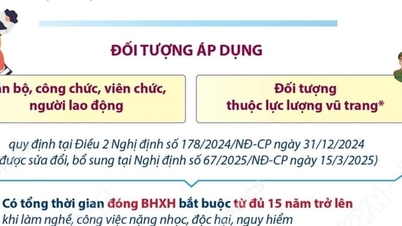












![[Video] General Secretary To Lam: Science and Technology sector continues to pioneer in helping the country make breakthroughs](https://vphoto.vietnam.vn/thumb/402x226/vietnam/resource/IMAGE/2025/9/29/4ec5dc37921040cb8f5dcc1514ada764)
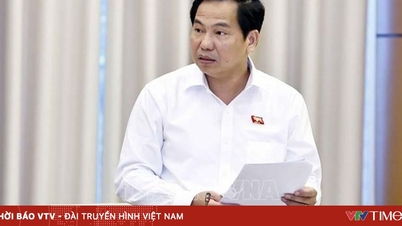

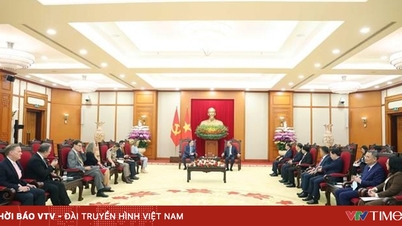





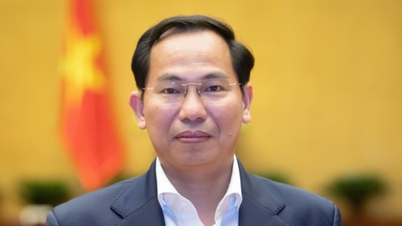



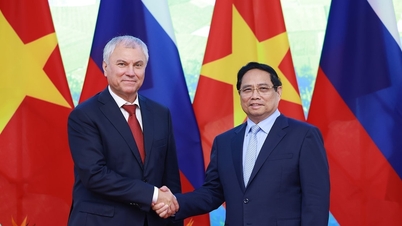


















































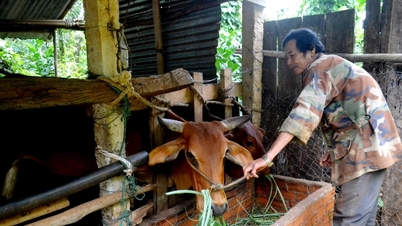
















Comment (0)